As a city of considerable size and history, Kyoto is packed with many sights worthy of a visit. It’s easy to spend a month in this city without ever getting bored . However, if you have only a short while to visit, you must include these twelve destinations on your Kyoto holiday.
Arashiyama Bamboo Grove
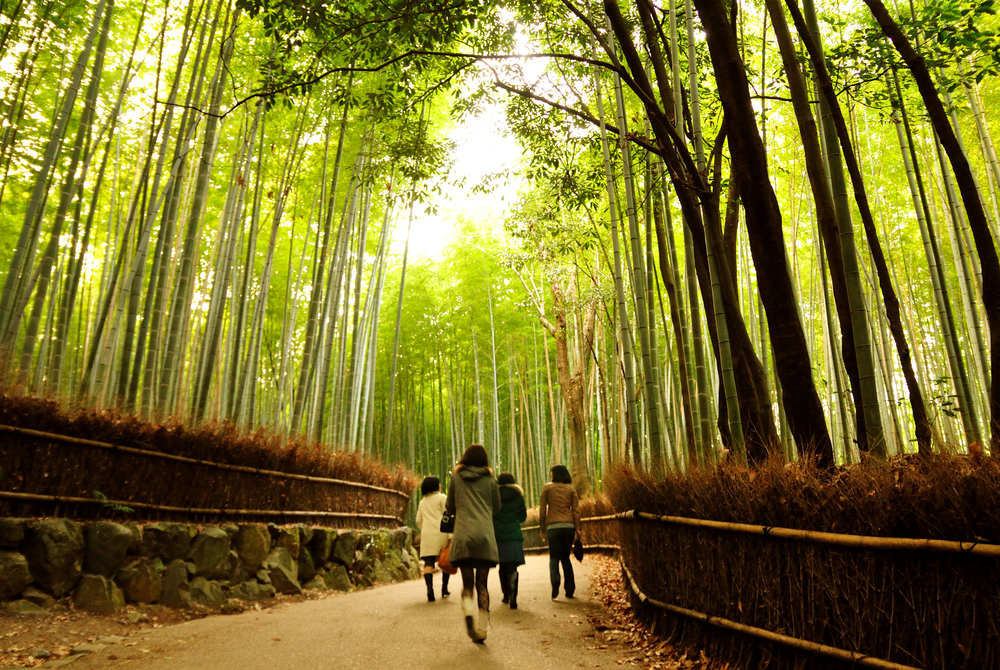
Located on the outskirts of Kyoto, the Arashiyama Bamboo Grove is one of the most photographed attractions of Japan itself. The tranquility and the air of mystery pervading this forest of majestic, towering bamboos cannot be captured in a photo. It’s easy to forget the time while standing still in this grove.
Fushimi Inari-Taisha Shrine

Fushimi Inari-Taisha is the main shrine of the Shinto god Inari, god of fertility and agriculture. Located on the base of Mount Inari, the shrine is famous for its winding tunnels. Formed by torii gates leading to the inner shrine and other smaller shrines up the mountain. Tourists would certainly put this on their top destinations to visit in Kyoto.
Ginkaku-Ji

Also known as The Silver Pavilion. The Ginkaku-ji is a Zen temple originally meant to be the retirement home of Ashikaga Yoshimasa. He is the shogun who ruled Japan in the late 1400s. While the temple itself is stark. The manicured sand garden and reflective pond within the temple grounds make a magnificent scene.
Gion
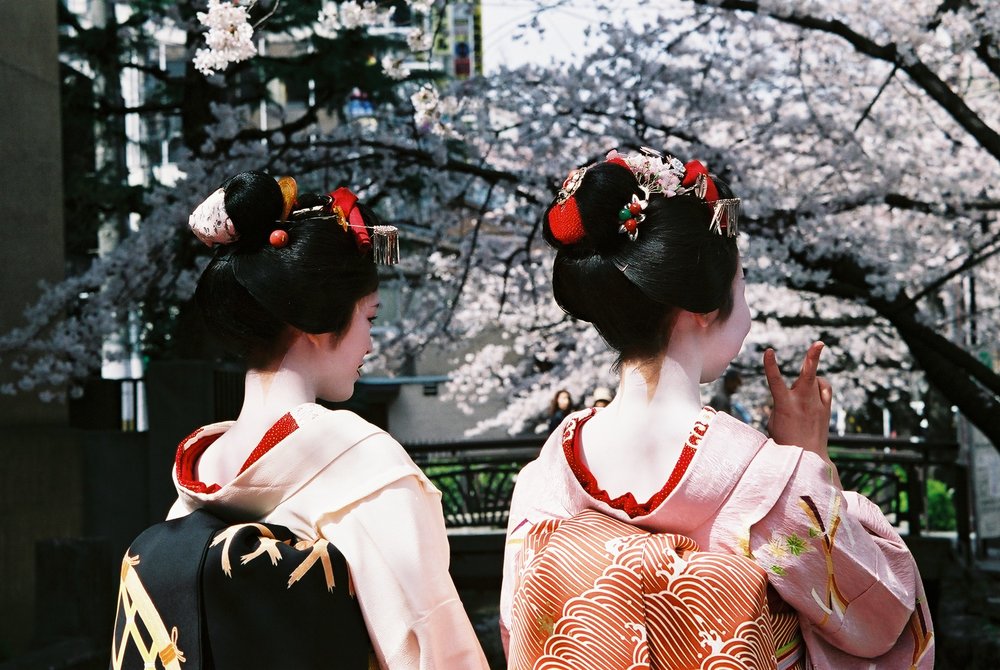
Gion is a district in Kyoto where geisha culture is most strongly preserved. Here you will find geiko (women of art) and maiko (apprentice geisha) engaged in traditional forms of Japanese entertainment. They include dancing, playing the shamisen, and tea ceremonies. The district is also well-known for its ancient but well-maintained traditional architecture. That gives you another reason to visit Gion.
Kinkaku-Ji
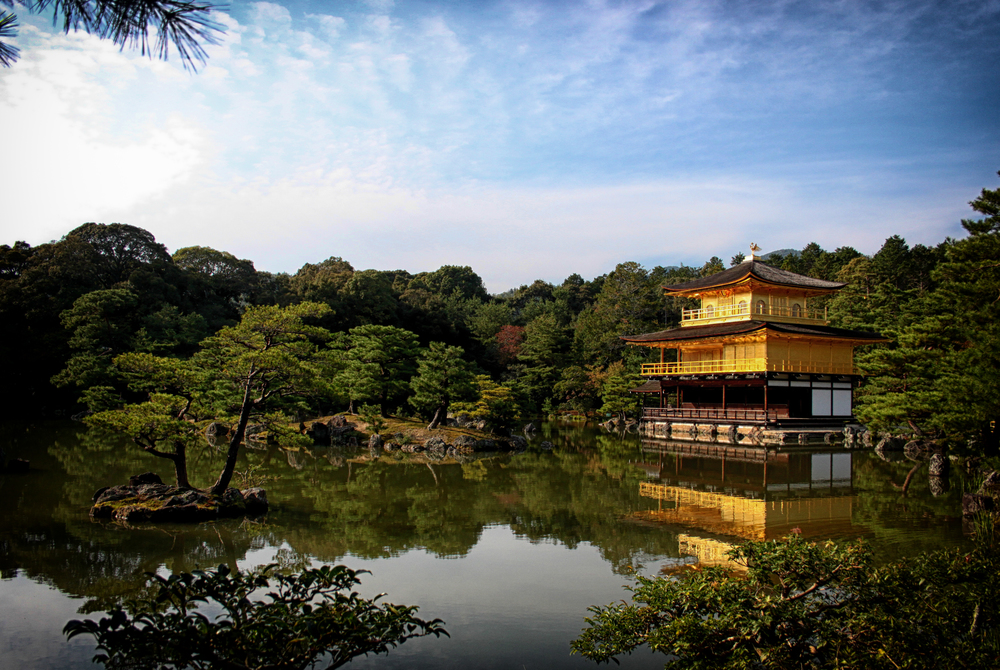
Also known as the Golden Pavilion, is the much grander cousin of the Silver Pavilion. The Zen temple is named because its top two storeys are covered with pure gold leaf. A World Heritage Site, Kinkaku-ji is famous for its classical Japanese garden complex. The temple features bridges, ponds, and rock gardens inspired by Chinese and Japanese literature.
Kiyomizu-Dera Temple

A World Heritage Site, the Kiyomizu-dera is a Buddhist temple known for its main hall, made entirely of wood and constructed without the use of nails. Beneath the hall’s large veranda is a waterfall; the veranda itself offers magnificent views of Kyoto.
Kyoto Imperial Palace

The Kyoto Gosho, or the Kyoto Imperial Palace, is the Japanese Emperor’s official residence in Kyoto. The palace as it stands today is a reconstruction as the original palace was destroyed by fire centuries ago and has been rebuilt many times since. You’re required to fill up an application with the Imperial Household Agency before you can enter the palace. But it’s worth a visit for its historical treasures and classical architecture.
Kyoto International Manga Museum
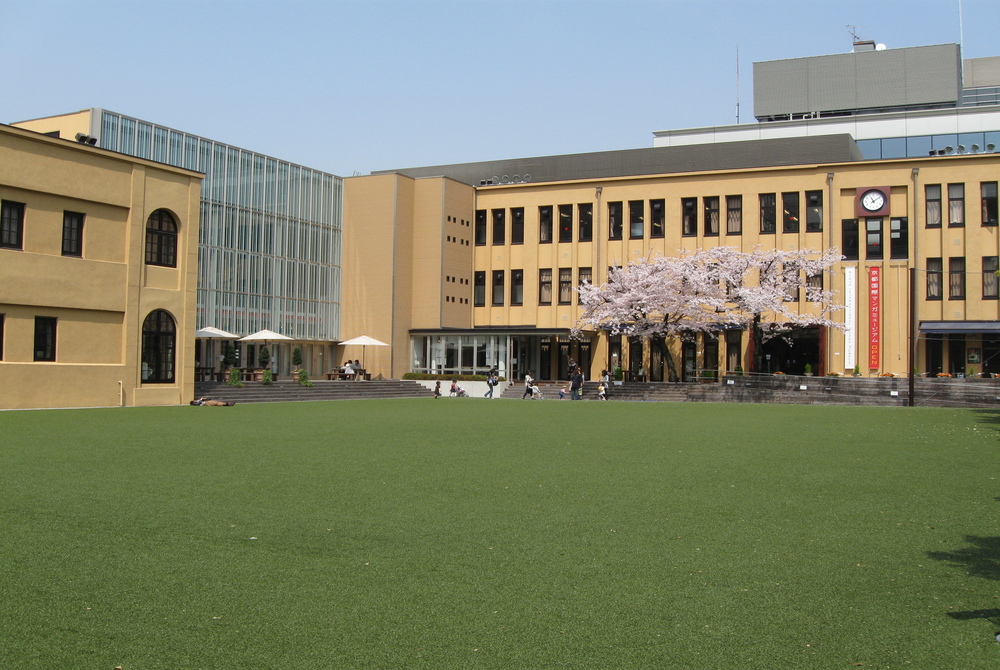
A visit to the Kyoto International Manga Museum is a must if you’re a fan of Japanese comics or Japanese pop culture. This former high school building contains shelves upon shelves of manga titles, both well-known and obscure. Even more, you can stay here to read manga too if you want.
Maruyama-Koen Park

Maruyama-koen Park is located between two temples at the base of Mt. Higashiyama. It contains ponds, streams, gardens, and cherry blossom trees in Kyoto. This is most certainly one of the destinations to go in Kyoto for cherry blossom viewing in springtime.
Okochi-Sanso Villa

Previously the home of period actor Okochi Denjiro. The Okochi-Sanso Villa is now a sprawling public garden because of its utmost serenity. Built in the classical Japanese style, the villa features gardens showcasing the four seasons. Accompanied with shrines and a teahouse. Moreover, the observation platform in the villa offers views of Mt. Hiei, the Hozu River, and the Kyoto cityscape.
Ryoan-Ji Temple

The Ryoan-ji is a Zen Buddhist temple known for its minimalism and its rock garden. The rock garden is considered to be the best example of dry-garden style. The garden is designed with 15 rocks but only 14 can be seen at one time. It is said that you can only see all 15 rocks simultaneously if you attain enlightenment.
The Path of Philosophy

Finally, the Path of Philosophy is a walking path that follows a canal lined with cherry blossom trees. The path is named after 20th century philosopher, Kitaro Nishida. It was said that he walked the path as part of his daily meditation. Furthermore, the Philosopher’s Walk is lined with temples worth visiting. The northern end of this path is at the base of the Silver Pavilion.
Seeing every sight worth seeing in can take you weeks, But if you don’t have weeks to spend there, these twelve destinations will give you a rich taste of the culture and beauty of Kyoto. We’ve also got tons of other guides for your Japan trip. Read all about them here!

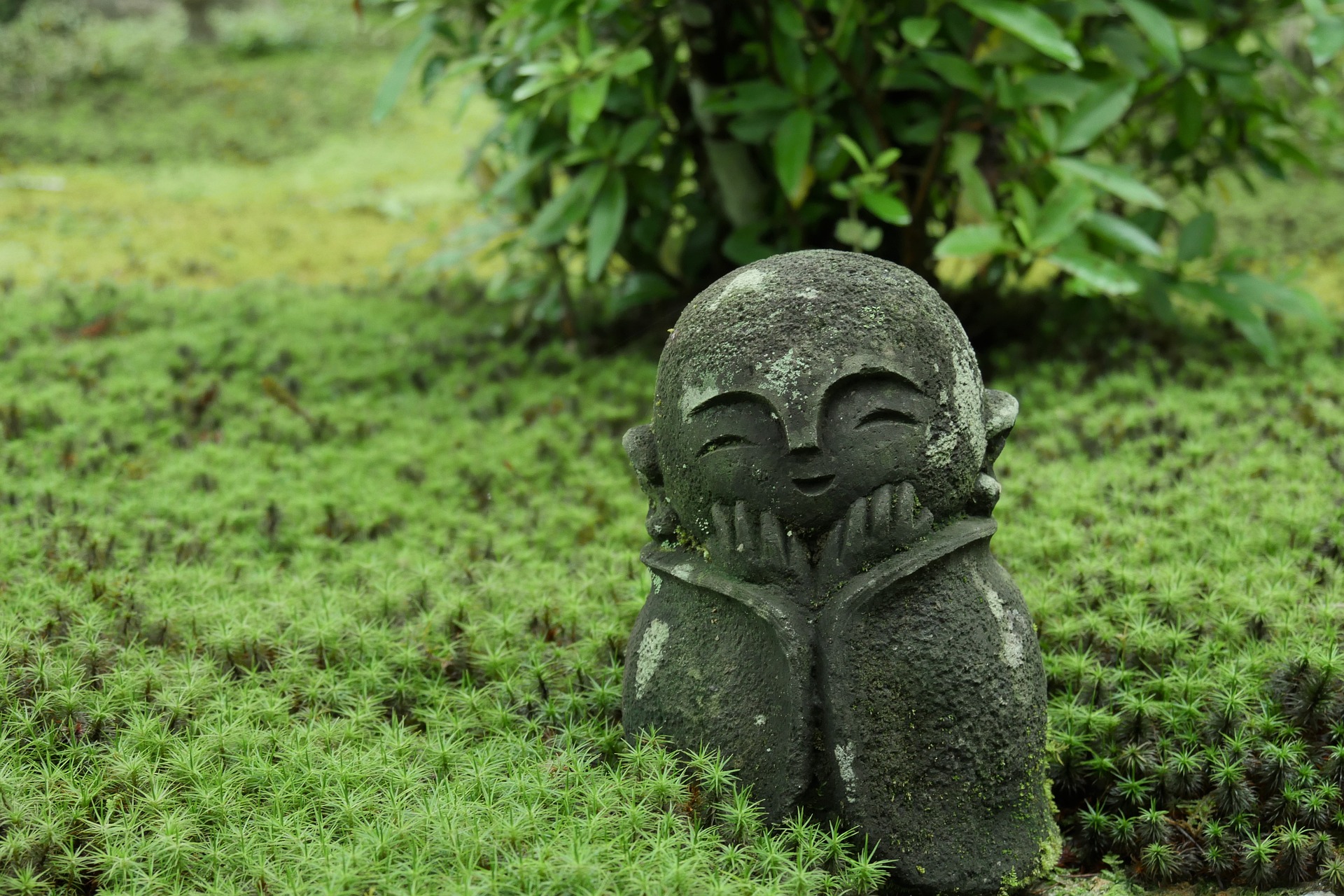
Leave a reply